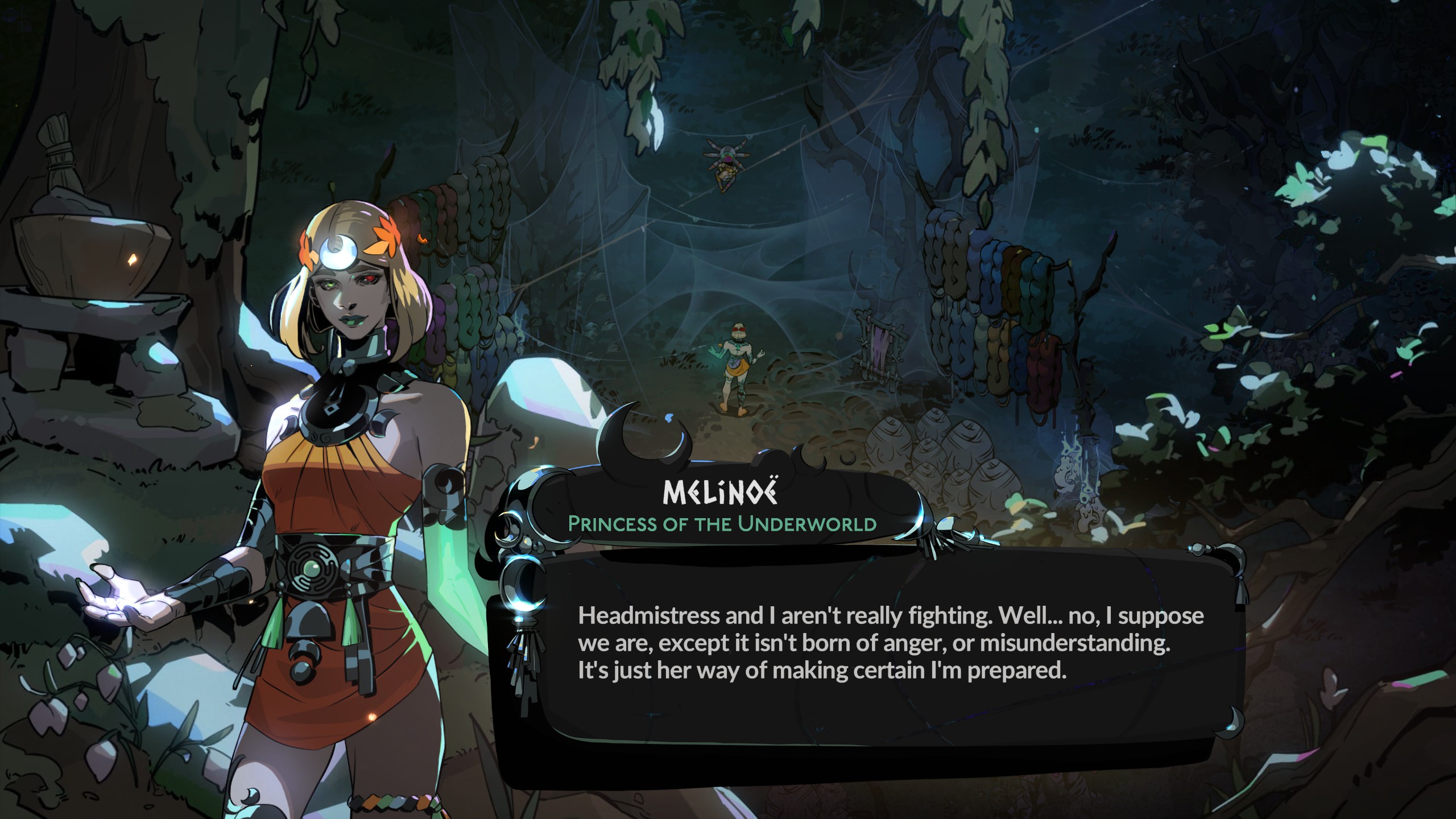
A couple of weeks ago, Hades II exited early access and released in its 1.0 form. A huge number of people I know have been delving into its depths (and ascending its mountains). Most of them have put in more time than I have, since much of my gaming time has been devoured by the long (and still delightful) tail of Silksong. I can’t yet opine about endings, boon combinations, weapon aspects, or what have you. But I’ve played enough to get the feel for it, to see most of its regions and fight many of its bosses and mini-bosses at least once or twice.
What I can talk about is how Hades II fits into Supergiant Games' legacy and why it ultimately leaves me somewhat cold despite its many great qualities.
Hades II is Supergiant’s first sequel, and it seems to be a perfect example of what makes sequels so rewarding: smartly reusing assets and systems by expanding them into new directions with new twists. It’s the same foundation, but with a plethora of new ideas and variations built on top of it.
Hades, its predecessor, was a genuine indie darling. It reached beyond the core audience for roguelike action games and leveraged the studios affinity for charming, character-driven storytelling to broaden its appeal dramatically. Some folks I know felt welcomed into an otherwise brutal genre because of its distinct sensibilities.
Hades II is no less sharp, delivering its story as before through a web of relationships, fueled by writing and voice acting that’s grandiose and admirably unselfconscious. It’s a well-crafted work, honed by iterating on its formula. It’s making good use of its resources and its time in Early Access to feel bigger, more dynamic, and deeper than the previous title. But despite the many ways in which Hades II evolves its formula, it is ultimately more Hades. It feels like popcorn: a whole new spread of delightful character designs and spectacular music, lots of great twists on its core systems…but nothing so bold or unique as the studio’s earlier titles. To put it bluntly, it's remarkably safe.
One of Supergiant’s signature elements, crucial to everything they’ve made, is what I might call “gestural storytelling”. Their games constantly invoke stories and worlds offscreen, using (often diegetic) allusion to goings-on at a much greater scale than the focal character’s journey. In Bastion, it’s Rucks’ ruminations on the history that brought their world to collapse. In Transistor, it’s the noir-esque backstory profiles of the digital beings that become Red’s abilities. In Pyre, it’s an ongoing plot in the Commonwealth above, the unseen haven to which the Exiles might return if they can succeed in the Rites.
Both of the Hades titles have a version of this as well, gesturing at the histories, alignments, and animosities between the familiar pantheon of Greek deities, sprinkling in original twists here and there, and delighting players with their interpretations of classic characters. But neither of these titles really has a world outside its characters that feels mysterious or larger than what we know. The warring gods in Hades II are locked in infinite stalemate as the game waits for you to unravel the status quo. The affairs of mortals crop up occasionally but seem largely immaterial. There are happenings outside of Melinoë’s field of view, but the soul of the story belongs to her, to all the small moments of conflict, affection, and determination that she shares with the wider cast of the game. That’s a perfectly fine choice—and often an affecting one—but it does make me miss the grandiosity of what the older titles did with implication and allusion.
Meanwhile, the experience of playing the game certainly feels like an evolution of Hades, with creative weapons and interesting boon combos. But none of it feels nearly as fresh as Transistor’s almost-turn-based action combat and multi-faceted function slots, or Pyre’s bizarre ritual sports matches and asymmetrical kits. If I’m being particularly uncharitable, Hades II feels almost like filler. But I only feel this way because it's from a studio that I love for their sense of daring, for storytelling ambitions that always stretch far beyond the edges of the screen and gameplay ideas that surprise me.
For all my gripes, I’ll continue to play and generally enjoy Hades II. I can’t ignore the reality that for every (mild) hater like me, there are hundreds of players who would never be drawn into something as offbeat as Pyre. Hades II is almost certainly going to keep Supergiant’s doors open for many years to come. I can’t fault them for giving fans what they want, especially when their work is still full of so much indulgent fun in its writing, performances, and aesthetics. And I can imagine the kind of pressure and urgency that comes with making unique and unexpected art that also needs to sell well enough to sustain livelihoods. Moreover, I don’t doubt that the developers have enjoyed making this Hades II! But in my heart of hearts, I hope they get an itch to make something far stranger next.